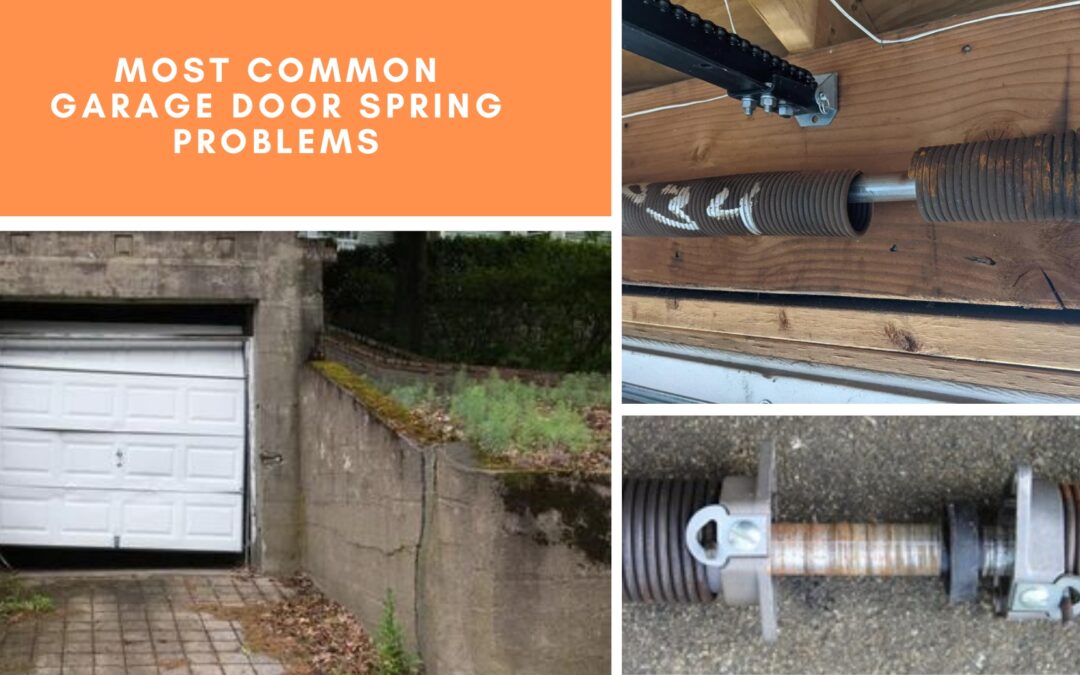One of the most crucial components of a garage door system is the springs. They assist in lifting and lowering the door, but they wear out over time. If you are having issues with your garage door springs, you should get them diagnosed and fixed immediately. This blog post will go through the most common issues with their garage door springs and how to remedy them.
Most Common Garage Door Spring Problems
Broken Torsion Spring
Depending on its size and weight, your door may have one or two torsion springs on each side. These springs are responsible for bearing the door’s weight and opening and closing your door. If you cannot keep your garage door open or will not open, the torsion springs have likely snapped. Another symptom is when your garage door will open a few inches before coming to a halt. The most obvious sign that your torsion spring has snapped is when you see a visible gap between the coils. When this is the case, your spring is damaged and needs garage door spring replacement.
Broken Spring Cable
Extension springs have spring cables that run through them. These cables pull or extend the spring at a constant rate to counterbalance the weight of the door. If the spring cables snap or come loose somehow, nothing will be controlling the extension springs. Spring cables break due to wear and tear from constant use and humidity near the base of the door. If a pulley’s bearings are worn out, it might speed up the wear and tear. When you see that wires dangle around the door or the tension is loose, there is a problem with the cables. Immediately call a professional to address the problem because this will affect the operation of your garage door.
Improper Spring Tension
If the springs on your garage door are not properly tensioned, the door may open and close unevenly or at the incorrect speed. That will cause unnecessary wear and strain on your garage door components. Do you notice that your door opens and closes too quickly or with difficulty? Does it close partially or in an uneven manner (leaving a gap)? Then it may need spring adjustments. Depending on the nature of the problem, you may need to increase or decrease the door’s spring tension. If your door is difficult to close or not fully closing, or it opens too rapidly, you need to decrease the tension. When the door is difficult to open or closes too rapidly, increase the tension. But if your door is not closing evenly, adjust the tension on one side (where the gap is).
Noisy Spring
Springs are usually constructed of steel. So it is just normal for the springs to make a reasonable level of noise when opening and closing your garage door. However, they can lose their flexibility and grow brittle over time as they get older. Lubricating your springs should be done every 3-6 months, or sooner if you hear a rattle or clunking sound as your door opens or closes. If your garage door springs are making a screeching noise lasting more than a week, you may have broken springs. Replacing them with new, more resilient springs will help your garage door make less noise and last longer.
Garage Door Repair Near Me
Do not let a broken garage door spring ruin your day. Call Titan Garage Doors NE, and we will get your garage door back up and running in no time. Our team are expert professionals in garage door spring installation and broken spring replacement. We are serving the greater Omaha area and Council Bluffs, Iowa, and we are here to help no matter what your needs are. Call us at (402) 513-0255 for free estimates.
